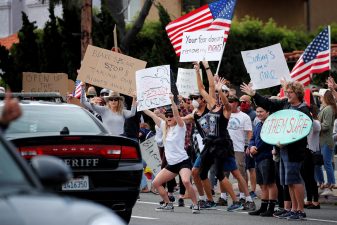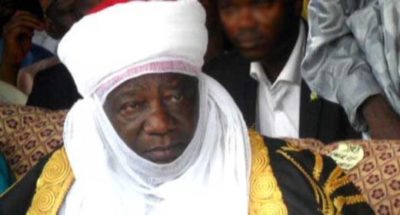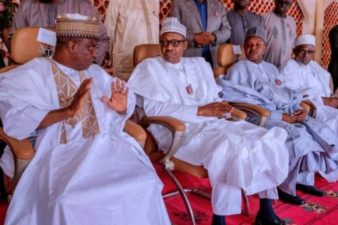The government of the Federal Republic of Nigeria has taken a bold step finally scrapping the Special Anti-robbery Squad (SARS), which reportedly is already becoming an embarrassment to the nation as several pointers show the anti-robbery unit has become anti-people.
The decision of the Muhammadu Buhari-led government, which is yet another sign Nigerians truly now are governed by the government they own, followed widespread #ENDSARS protests in parts of the country.
Announcing the scrap Sunday was the Inspector General of Police, Alhaji Mohammed Abubakar Adamu, who dissolved the infamous unit of the Nigerian Police Force with promise of arrangements to address armed robbery cases around.

“The Special Anti-Robbery Squad of the Nigerian Police, otherwise known as SARS, is hereby dissolved across all formations, the 36 state police command and the Federal Capital Territory where they currently exist,” the IGP said on Sunday.
“All officers and men currently serving in the unit are to be redeployed with immediate effect.”
The police authorities will be announcing new policing arrangements to address the offences of armed robbery and other violent crimes that fall within the mandate of the Special Anti-Robbery Squad later.
Adamu’s announcement followed days of widespread protests by Nigerians demanding scrapping of the unit which had gained notoriety for brutality and human rights violations.
Protesters carry a placard reading “Special Anti-Robbery Squad SARS Are Authorised Criminals” during a demonstration calling for the scrapping of the controversial police unit, in Ikeja, on October 8, 2020.
Beyond scrapping the unit, he acknowledged reports of extortion and brutality, announcing a plan for an investigation.
“To deal with the reports of crimes committed against citizens an investigation team will be constituted which will include civil society organisations for transparency and the culprits will be punished,” he said.
The IGP did not give details of the time range the investigation will cover and whether it would include the harassment, threats and violence protesters suffered during the #EndSARS protest, including the killing of a young Nigerian Jimoh Isiaq in Ogbomoso on Saturday.
Witnesses said Isiaq was shot by the police.
In contrast with the action of the police including the use of tear gas on protesters and the shooting witnessed, the IGP described the protests “as a manifestation of the natural desires of citizens to participate in matters concerning policing and internal security in the nation”.
To better relations between the public and the police, the IGP also announced “a citizens and strategic (stake)holders forum will be formed to regularly interface with the leadership of the police at all levels and advice on police activities”.
The unit was founded in 1992 to combat cases of armed robbery, kidnapping, and other violent crimes. But SARS, instead, over time, has gained notoriety for its reckless intimidation of innocent civilians through puerile profiling and wanton abuse of power.
Calls for the unit’s disbandment date as far back as 2017 and while the Federal Government and police chiefs have made several pledges to implement reforms, reports of SARS’ brutal activities against civilians have not abated.
The current wave of protest can be traced to October 3, after another report of extra-judicial killing in Delta State (the police have denied any killing took place).
It sparked fresh concerns and anger. Fuelled by this, and the outpouring of tales of traumatic experiences at the hands of officials of the unit, many Nigerians have held protests in many states, including Lagos, the Federal Capital Territory, Kaduna, Osun, Edo, and Imo.
Young men take part in a demonstration calling for the scrapping of the controversial Special Anti-Robbery Squad “SARS” police unit, in Ikeja, on October 8, 2020.




